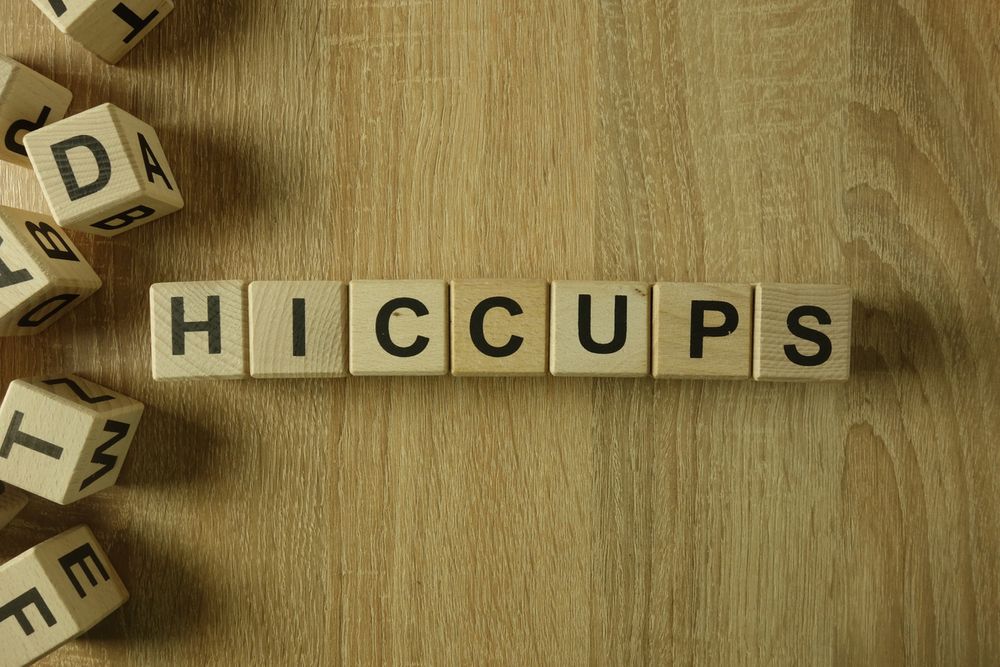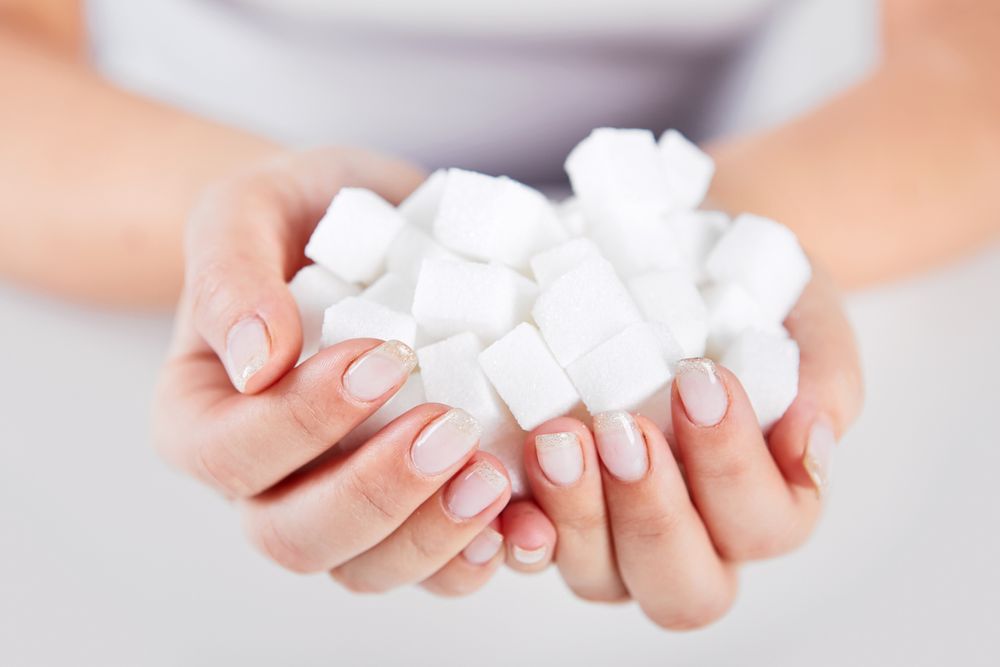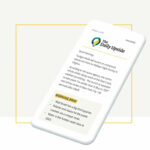It’s a question that plagues us all from time to time, but here you will find the answers! Keep reading as we tell you everything you need to know about how to stop hiccups
View in gallery
Hiccups can be extremely annoying and persistent, to the point that they’re sometimes even painful. Because of this, we think everyone should have ways to stop a bout of hiccups engraved in their brains.
If you’ve ever suffered from hiccups, or are preparing yourself for the future, keep reading to learn 17 ways to stop hiccuping.
What Causes Hiccups?
Before we get into some weird and creative ways to get rid of hiccups, we thought it was important to highlight what exactly hiccups are and what causes them.
A hiccup is essentially an involuntary spasm in your diaphragm. Your diaphragm is just below your lungs, and its job is to help you breathe in and out.
The sound of a hiccup comes from your vocal cords snapping shut after the involuntary spasm. And don’t worry, we know the word spasm sounds scary, but hiccups are normal and usually nothing to worry about.
So, what exactly causes hiccups? Well, here are some factors that can bring on the dreaded diaphragm spasms:
- Eating too quickly
- Eating too much
- Consuming spicy foods
- Drinking carbonated drinks
- Drinking alcohol
- Quick temperature changes
- Stress or excitement
How Long Do Hiccups Last?
Regular hiccups can last for anywhere from a few minutes to a few hours. However, some may last considerably longer. These are called chronic hiccups, and they’re persistent hiccups that can go on for days at a time.
View in gallery
As I’m sure you can imagine, having long term hiccups can interfere with eating, breathing, and sleeping. It’s crucial to seek help if your hiccups last longer than two days, as you may need medical treatment to help identify an underlying medical condition.
Doctors can prescribe medication for ongoing cases of hiccups, so it’s better to get professional help instead of suffering!
Speaking of suffering, and we don’t want to alarm anyone, but the record for the world’s longest hiccup streak in the Guinness Book of World Records is 68 years. Charles Osborne developed the hiccups in 1922 and dealt with the diaphragm spasms every day until eventually, they stopped one morning in 1990.
How to Stop Hiccups Fast
Now that we’ve covered how hiccups occur and what hiccups are, let’s get into some home remedies to help you treat hiccups.
Breathing and Posture
When it comes to combatting hiccups, posture and breathing are two vital components that should be your primary solutions when your diaphragm gets all jittery.
Hold Your Breath
Holding your breath is quite possibly the most known home remedy for hiccups. All you have to do is inhale and gulp down a large amount of air. Hold your breath for as long as you can, and then breathe the air out slowly. You may need to repeat the process a few times.
Breathe Into a Paper Bag
Breathing into a paper bag isn’t just for hyperventilation. It can also work as a hiccup remedy. Place the bag over your nose and mouth. Then, slowly breathe in and out.
Use a paper bag and not a plastic bag for this method.
Practice Breathing
Measured breathing is the number of breaths you take per minute. To disrupt your diaphragm and respiratory system, practice by breathing in for five seconds and out for five seconds.
Hug Your Knees
Hugging your knees while sitting down can help compress your chest and stop diaphragm spasms. Sit in a comfortable place and bring your knees up to your chest. You may need to hold them for around two minutes to stop the hiccups entirely.
Compress Your Chest
Another way to compress your chest is to lean or bend forward. This motion puts pressure on your diaphragm, which stops the spasms.
Valsalva Maneuver
The Valsalva Maneuver is where you pinch your nose, keep your mouth closed, and try to exhale. This maneuver helps to slow your heart and allows you to focus on your breathing.
Food or Drink Could Be the Answer
Not only can certain foods or drinks work as hiccup remedies, but the way you drink can also play a role.
View in gallery
Ice Water
Slowly drinking ice water can help stimulate the vagus nerve and phrenic nerve. The vagus nerve and phrenic nerves are nerves in the parasympathetic nervous system that, once stimulated, can help treat intractable hiccups by relaxing the diaphragm.
Warm Water
If you’ve tried drinking cold water and that hasn’t worked, then give something a little warmer a try. Slowly drink a glass of warm (at least room temperature) water without taking a breath or stopping.
Drink From the Opposite Side of the Cup
Now, you’re going to look a little funny doing this one, but it works! Take a cup and tip it up under your chin. Essentially, you want to drink from the opposite side to which you would normally.
Gargle Ice Cold Water
Gargling ice water helps to overwhelm your vagus nerve and cure mild hiccups. Gargle the water for roughly 30 seconds and repeat as much as necessary.
Eat a Spoonful of Peanut Butter or Honey
Honey and peanut butter help soothe the vagus nerve and ultimately break the hiccup cycle. Scoop out a spoonful of honey or peanut butter, place it on your tongue and allow it to dissolve before swallowing.
Suck on a Lemon
Sucking on a lemon is another, albeit more sour, way to disrupt the signals from the nerves. When you suck on a lemon, for example, your brain will receive signals to attend to this new sensation on your tongue. Lemons aren’t for everyone, so only try this method if you can withstand a bit of a sour taste.
Eat Sugar
A sweeter option to sucking on a lemon is to eat sugar. Eating sugar also disrupts the signals from the brain to the stomach, so grab a pinch of sugar, place it on your tongue and allow it to sit there for about 10 seconds.
Pressure Points
There are pressure point locations throughout your body that can help to relax your diaphragm and stimulate both your vagus and phrenic nerves. Try these pressure point methods to see if they work for you.
Press On Your Diaphragm
The first pressure point is actually on your diaphragm itself. Your diaphragm sits just under your lungs and separates them from your abdomen. Take your hand and apply a small amount of pressure just below your sternum in the middle of your chest.
Pull On Your Tongue
Again, another one you might look slightly weird doing, but it’s all in the name of hiccup resolutions. Grab the top of your tongue and gently pull forward. You should only need to two this once or twice before your nerves are stimulated and your diaphragm relaxed.
Squeeze Your Nose
Similar to drinking water without breathing, you could also pinch your nose and slowly swallow water to help your hiccups resolve.
Squeeze Your Palm
Take your thumb of your right hand and press it into your palm on your left hand. The discomfort of this method is what helps to distract the nervous system.
How to Prevent Hiccups in the First Place
Hiccups happen involuntarily, so there are no ways to prevent them fully.
View in gallery
There are, however, some things you can do to try and stop them from occurring quite so much:
- Try not to drink sodas, alcohol, or hot drinks. Sodas make you take in more gas, alcohol irritates your esophagus, and hot drinks initiate the phrenic nerve. All of these things can cause, you guessed it, hiccups.
- Don’t chew gum or smoke. Both smoking and chewing gum can cause you to swallow air and upset your diaphragm.
- Try not to eat spicy food. For example, Chilli peppers contain a chemical compound known as Capsaicin. Capsaicin then activates neurons in the diaphragm, eventually leading to hiccups.
- Slow down when eating. Eating too quickly can also result in you swallowing air which irritates your diaphragm and causes hiccups.
- Don’t have cold and hot food or beverages together. Temperature changes in your esophagus can irritate and overstimulate your nerves which cause your diaphragm to contract and eventually spasm.
How to Get Rid of Hiccups: Our Final Thoughts
Hiccups are annoying, unwanted, and occasionally a right pain in the diaphragm. But, with home remedies and/or palliative medicine, your hiccups can be stopped, and your life can return to normal.
As we wrap up our article on how to get rid of hiccups, we’re interested to know your go-to home hiccup remedy. What method works best for you? And are there any other ways that work particularly well in resolving the hiccup issue? Let us know in the comment section down below!





